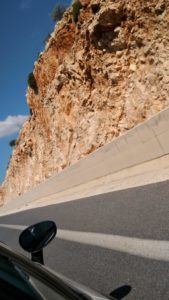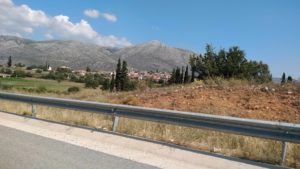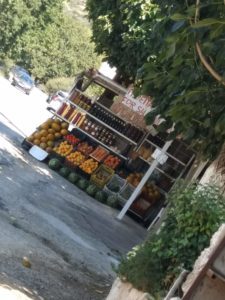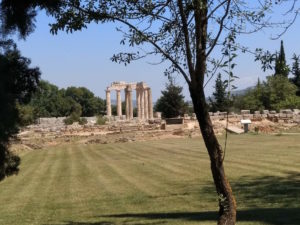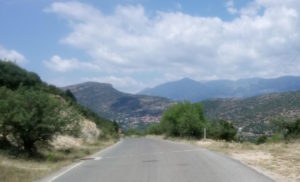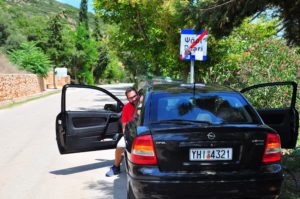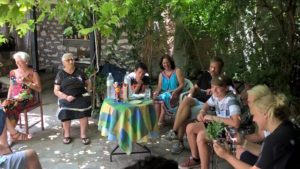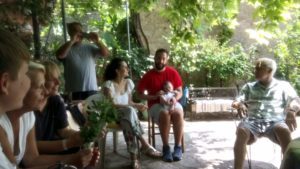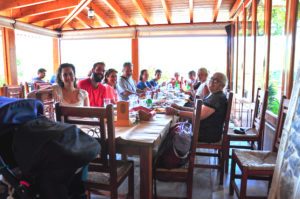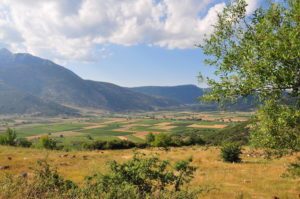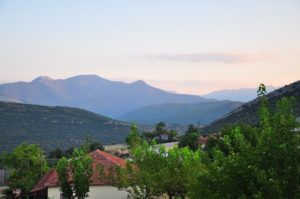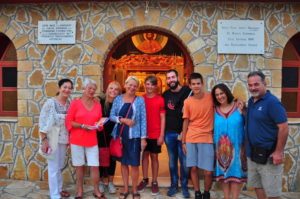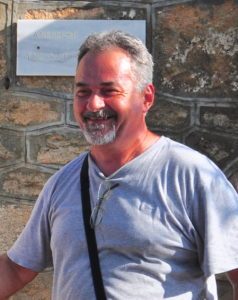22 July 2018, Sunday morning
The beginning of a time travel back to the year 1944. Our first station is a large rock, the ‘Makri Lithari’. Behind this stone the 32 german soldiers hid from the partisans on the road below, among them my grandfather. It didn’t help – another ELAS unit came down the mountainside, shot half of the soldiers and captured the remaining 16.
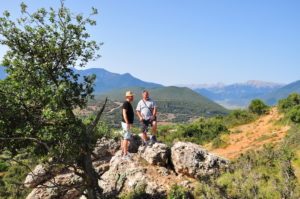
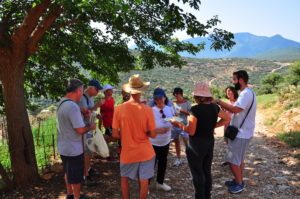
Giannis and I stand on the rock, looking around. I ask myself what the Germans could have wanted here. No location of strategic importance, no war essential resources. Just rocky landscape, meager grass, a few goats.
We’re on our way back to the road when the owner of the territory approaches us with fresh goat cheese and a bottle of the local grappa. Giannis explains to me that it is custom to serve the strangers when they cross the own land. Not for the first time I’m impressed by the greek hospitality.
Our next station is a little chapel at the opposing flank of the valley. Stony serpentine roads let us feel that a Fiat Punto is not a off-road vehicle. A worrying noise level from the cars underbody is drowned by the high-speed driven motor. I have to ask my family to leave the car at some inclines. It is reassuring that we are able to swerve at this speed when turtles are crossing.
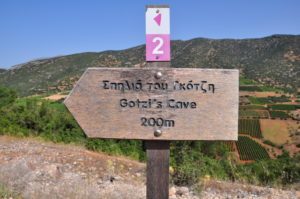
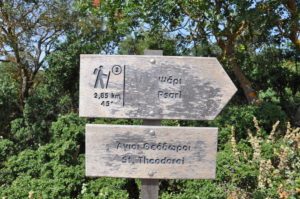
We reach the chapel several minutes after our companions. From here a pathway leads to a large cave in the mountain, the ‘Spilia tou Godzi’ (Gotzis cave).
To hide from following german troops the ELAS partisans went to this cave with their prisoners. They stayed for the night.
The place couldn’t have been chosen better. The cave is hardly visible from the valley. From the inside the viewer is able to control the whole landscape. It’s an incredible sight for me on that day, and I ask myself what my grandfather could have thought 74 years before when he saw this. Maybe he assumed this picture would be the last beautiful in his life. Or he felt new hope in light of this view.
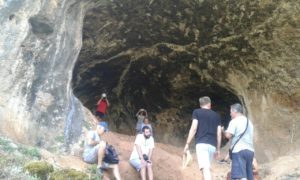
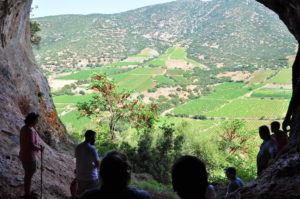
I catch myself secretly looking for traces from the past. Without success.
When we leave the cave Giannis holds me back. We look at each other and he hands me something. It’s a broad nail covered with rust. A nail like it was used to stud soldiers’ boots.
We walk back to the chapel. I feel depressed, sorrowing for the grandpa I’d never known. Giannis is also quiet in this moment. It seems to me I can read similar emotions in his face. But there’s no refusal, hostility or even hate noticeable. Neither by him nor by me.
The roads get better again when we reach the last point of our time travel. The family Gatsiopoulos lives far outside from Psari. As one of the last they sell their own cheese and yoghurt independent.
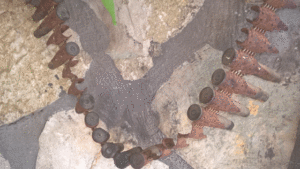 We’re on a covered terrace. On the wall of the house hangs a rusty ammunition chain. The caliber seems to be the one from a german machine gun.
We’re on a covered terrace. On the wall of the house hangs a rusty ammunition chain. The caliber seems to be the one from a german machine gun.
Giannis introduces me to Mr. Gatsiopoulos, son of an ELAS member. We shake hands, he doesn’t look into my eyes but gazes down. What appears to me like aversion at the first moment is a deep shame, actually. Giannis explains to me that the inhabitants of Psari and the surrounding area are not willing to judge the Germans and their atrocities during the war. They’re rather ashamed of the brutal handling by the ELAS with their German prisoners.
I am stunned at this moment. At the beginning of the journey I had been prepared for a range between refusal and goodwill. Now this man stands in front of me and feels ashamed before a descendent of an invader. I want to embrace him, telling him that the guilt is on my nations side; but I’m not sure if this gesture would be adequate. So I carefully touch his shoulder, also lower my eyes, and hope he would interpret this as a gesture of reconciliation.
There’s a sinkhole amidst the surrounding fields (Katavothra in Greek) leading down to a subterranean river. The edges have been concreted in the 70s. Neighbouring is a small lake encircled by trees and high grass. An idyll.
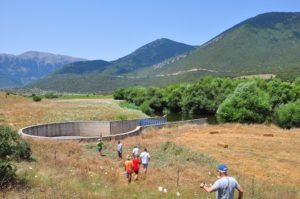
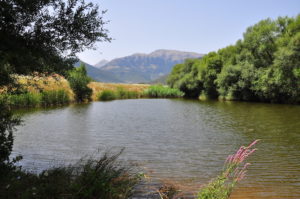
On 3 July 1994 the life of Paul Gerhard Wierschke ended here. The ELAS partisans pushed the 16 Wehrmacht soldiers down the sinkhole. In light of the depth there was no chance of survival.
We stand at the edge of the Katavothra. Mr. Gatsiopoulos quietly says something. Giannis translates into English: ‘Your grandfather is now looking at you from above and he’s happy not to be forgotten.’
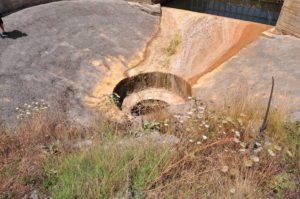
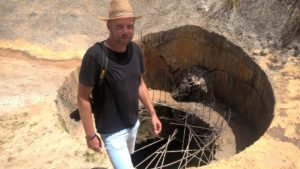
Giannis and I keep standing there for a while, arm in arm. Looking down the hole. We both have tears in our eyes. It is one of the most moving moments in my life.

